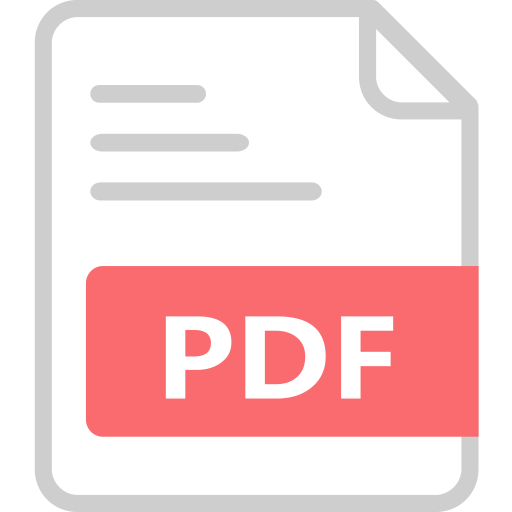| | | | To get started you will need to understand your assignment in terms of what you are being asked to do and what the professor will expect from you GETTING STARTED ON YOUR RESEARCH PAPER SUGGESTIONS FOR UNDERSTANDING ASSIGNMENT SHEETS - "HOW TO" GUIDES FOR DIFFERENT TYPES OF ASSIGNMENT
| | | | | Exploring your topic can involve brainstorming to understand the scope of your topic, gathering background information, and thinking about how to develop your ideas. HOW TO COME UP WITH IDEAS HOW TO FIND BACKGROUND INFORMATION THINK ABOUT HOW TO FOCUS AND DEVELOP YOUR TOPIC
| | | | | Research your topic systematically. Use the links below to help you locate and evaluate source material in order to develop and support your ideas in a scholarly manner. PLANNING YOUR RESEARCH: HOW TO DO THE ACTUAL RESEARCH OTHER SOURCE MATERIAL YOU MIGHT USE GETTING HELP FROM THE LIBRARY (online chat or in-person)
| | | | | Organizing your ideas usually involves developing a thesis, deciding how to structure your ideas, and creating an outline or plan. ORGANIZE YOUR IDEAS FIND YOUR THESIS CREATE AN OUTLINE FOR YOUR PAPER Bringing together your research and thesis statement to plan your paper
| | | | | Aim to get your ideas on paper for your first draft; it doesn’t have to be perfect because you can fix it later, in step 6. While you are writing, keep track of where and how you are using reference material so that you don’t plagiarize by mistake. TIPS FOR WRITING YOUR FIRST DRAFT HOW TO AVOID PLAGIARISM HOW TO PARAPHRASE HOW TO WRITE EFFECTIVE PARAGRAPHS
| | | | | Check though your draft to make sure your ideas are complete, logically developed and well expressed. Fix anything that needs changing. STEP-BY-STEP REVISION GUIDE
| | | | | Now is the time to make sure you have referenced everything fully and properly. GENERAL ADVICE ABOUT USING CITATIONS A REMINDER ABOUT ACADEMIC INTEGRITY SPECIFIC (COMMONLY USED) CITATION GUIDES
| | | | | Make sure you proofread your work carefully before you hand it in. Read your draft aloud to help you catch grammar and spelling errors. Often you know what errors you habitually make, so keep an eye open for them! Here are some tools to help you check over your work one last time. USING TRANSITIONS PUNCTUATION
|
Based on the original Assignment Calculator from the University of Minnesota.  - Writing Process
- Punctuation Rules
- Grammar and Sentence Structure
- Multilingual Learners
- Graduate Writers
 Resources Writing ProcessThe writing process.  - Choosing a Topic and Creating a Thesis Statement Writing is a process. Invention/pre-writing > Planning > Drafting > Revising > Editing > Proofreading Don’t try to work through all of these stages in one sitting; start early and visit the stages at different times. These stages are fluid and often overlap; you won’t go through them in the same order for every paper you write. This is particularly true for research papers; you may find as you are drafting or revising that you need to go back to do some more research and planning. The Writing Center is a great place to talk over your ideas at any stage of the process—especially if you are having trouble getting started. This handout provides some simple steps to get started!
- Developing a Thesis This link from Harvard includes some helpful tips for developing a thesis statement.
- How to Make a Formal Outline in Microsoft Word
- Mind Mapping and Outlining Creating mind maps is a method of brainstorming to help develop and/or organize ideas. It can be used as a step before creating an outline. This handout shows how some people create a mind map.
- Writing a Paragraph or Essay Using the Comparison / Contrast Rhetorical Pattern This handout shows both the Subject-by-Subject and Point-by-Point methods for organizing your Comparison/Contrast essay. Outline examples for both are also included.
- Outline Examples for an Argument Essay This handout includes three ways you can organize an argument essay.
- Common English Definitions Not sure what an "appositive" is? Are you confused when your instructor says you have a lot of run ons or fragments? What's an "idiom?" This handout includes the common terms and their definitions that are used in English grammar and writing.
- APA Versus MLA: Citation and Formatting -Why cite sources? -How do I know which style to use? -How do APA and MLA differ in paper formatting? This handout explains the differences between these two styles.
- Standard Elements of an Academic Paper Writing a paper usually involves reading, interrogating, ruminating, analyzing, and explicating, among other things. Academic assignments often ask you to synthesize ideas from texts and class discussions. The first step to writing a successful paper is understanding what each part of the assignment is asking you to do. This handout provides explanations and descriptions of the most commonly used parts of writing assignments, as well as suggestions for how to approach each part.
- Research Paper Assignment Calculator This site from the U of M provides some helpful tips to help you plan ahead when writing a research paper!
- Academic Writing Basics Every discipline has its own conventions, but there are some rules that apply to any college writing situation. The following tips are some of the most important things to remember when approaching any college-level writing project.
How to Find Reliable Sources Learn how to find reliable sources to use in your academic papers, including how to search for sources, evaluate sources, and organize sources with a reference management system. Academic Writer © 2020 American Psychological Association. - Next: Punctuation Rules >>
- Last Updated: Mar 6, 2024 1:20 PM
- URL: https://library.csp.edu/resources
 Library and Academic Support Services Concordia University, St. Paul 1282 Concordia Aveneu Saint Paul, MN 55104 Connect with us © Concordia University, St. Paul  - Study resources
- Calendar - Graduate
- Calendar - Undergraduate
- Class schedules
- Class cancellations
- Course registration
- Important academic dates
- More academic resources
- Campus services
- IT services
- Job opportunities
- Safety & prevention
- Mental health support
- Student Service Centre (Birks)
- All campus services
- Calendar of events
- Latest news
- Media Relations
- Faculties, Schools & Colleges
- Arts and Science
- Gina Cody School of Engineering and Computer Science
- John Molson School of Business
- School of Graduate Studies
- All Schools, Colleges & Departments.
- Directories
- Future students
- Current students
- Alumni & friends
- Faculty & staff
- Arts & culture
- In the community
- Sports & wellness
- Student life
- University affairs
- Publications & reports
- Find an expert
- Our award winners
- Filming on campus
Midterm momentum: better, faster, stronger... Take a bow. You made it through midterm exams. It’s a good moment to call home and share the news with your friends and family. If you wish you’d done better, don’t despair. There are resources in place at Concordia to get you back on track, emotionally and academically. “I recommend students give themselves at least a one-day, guilt-free break,” says Marc Léger, psychologist with Concordia’s Counselling and Psychological Services . “Try to return to a regular sleep schedule, and to ensure proper nutrition and exercise. A healthy body is essential for a healthy mind!” Get action-orientedLéger recommends that, in order to get motivated again for the next push, students need to begin working again and not wait to feel motivation. “This time of year has more to do with structure and self-accountability than it does with the burst of energy present at the beginning of the semester. Motivation comes from doing, so get action-oriented.” This doesn’t mean berating yourself, or thinking you have to be a perfect student, he insists. “A lot of students think that they have to have it together at all times. I remind them that being their best selves means not giving up when times are tough and thinking back to past successes.” Students who feel exceptionally overwhelmed can make a triage appointment to seek personal counselling. Need a new academic game plan?While getting action-oriented is essential to self-motivation, it’s also advisable to look at tangible ways to improve your study habits. “The worst thing you can do is worry without taking action,” says Juliet Dunphy, manager of Student Learning Services at the Student Success Centre . “If midterms created a crisis of confidence, what matters is what you do about it next.” Learning resources within the Student Success Centre exist in many forms: writing assistance , math assistance , study groups , language support and more than 200 workshops a year on topics such as strategies for studying in your second language, tips for online learning, taking multiple choice exams, time management and effective oral presentations. There is a writing assignment calculator online to plan and break down the process of drafting papers, as well as approximately 90 handouts with tips on everything from problem-solving to effective reading and note-taking. “Making an appointment with one of our learning specialists is a good place to start, along with requesting to be paired with a student mentor ,” says Dunphy. “We point students to workshops, handouts, math tutoring, writing assistance and possibly counselling. We also have strategic learning sessions — specific study groups for historically difficult classes in economics, chemistry, biology and geography.” Meet the learning specialistsHaleh Raissadat and Courtney MacDonald, two of Concordia’s full-time learning specialists, note that study strategies are different for reading-based courses versus problem-solving courses, which typically involve numbers. “Problem-solving courses are cumulative, so it’s important to make sure you understand everything as you go along,” says Raissadat, who specializes in problem-solving courses in math and engineering. “Redoing questions isn’t learning. You need to apply the knowledge in a different context.” For students in the humanities and other reading-based courses, MacDonald recommends that they "get into the habit of asking questions and making predictions while reading." She suggests students "read smaller chunks of information and stop to check for understanding regularly by answering their questions and confirming predictions.” Find out more about Concordia’s Campus Wellness and Support Services and the Student Success Centre . Related topicsYou might also like:. - So ... what's my GPA, exactly?
- Campus nooks to hit the books
- Eating well: advice for students from an expert
 Meet Concordia’s newest Public Scholars Algae offer real potential as a renewable electricity source, new Concordia research shows Concordia’s Volt-Age and Northvolt North America unite to transform energy and education© Concordia University Share this page! Vrinda Nair https://twitter.com/vnvrinda/status/1576228657085153280 Keep Current with Vrinda Nair Stay in touch and get notified when new unrolls are available from this author! This Thread may be Removed Anytime!  Twitter may remove this content at anytime! Save it as PDF for later use! People who liked this thread also liked...Try unrolling a thread yourself.  Practice here first or read more on our help page ! More from @VnVrinda Did Thread Reader help you today?Support us! We are indie developers! This site is made by just two indie developers on a laptop doing marketing, support and development! Read more about the story . Become a Premium Member ($3/month or $30/year) and get exclusive features! Become Premium Don't want to be a Premium member but still want to support us?Make a small donation by buying us coffee ($5) or help with server cost ($10) Or Donate anonymously using crypto! 0xfe58350B80634f60Fa6Dc149a72b4DFbc17D341E copy 3ATGMxNzCUFzxpMCHL5sWSt4DVtS8UqXpi copy Thank you for your support! Send Email!Email the whole thread instead of just a link!  Academic Resource CenterThe Academic Resource Center (ARC) at Concordia University, Nebraska provides on-campus academic assistance for all Concordia students. We are committed to helping students develop their skills in learning, academic success and personal growth in a friendly, supportive environment. All students are invited to visit the ARC for one-on-one help with: - Planning and scheduling
- Study skills and test preparation
- Effective notetaking
- Organization
- Problem-solving
- Time management
- Setting goals
Tutoring for Concordia StudentsConcordia has partnered with Pear Deck Tutor to provide free tutoring and writing support to all undergraduate and graduate students. Pear Deck Tutor provides access to one-on-one, live tutoring and writing support anytime, anywhere. Features include: - 24/7 on-demand tutoring
- Highly qualified tutors
- Interactive lesson space
- Asynchronous Writing Lab
- Help in any subject
Information about Pear Deck Tutor can be found in your courses by clicking the "Tutoring" link in your Blackboard course navigation. Snapshot Of Academic Performance (SOAP)Concordia faculty complete a Snapshot of Academic Performance (SOAP) report 3 times per semester in order to reach out to students regarding academic issues. Students are evaluated in the following areas for each class: - Low academic performance (below average grade)
- Poor class participation
- Low exam performance
- Intermittent attendance or non-attendance
- Missing work
- Weak writing skills
Results are shared with the ARC, advisors and coaches. Students reported with concerns in any class receive an email from the ARC inviting them in for assistance and problem-solving. Academic coaching and support are provided as well as referrals to tutoring and other campus resources as appropriate. We encourage students, advisors, faculty and coaches to connect and problem-solve as needed. Plagiarism and Academic Integrity At Concordia, we are guided in all of our work by the values of academic integrity: honesty, trust, fairness, responsibility and respect. As a student, you are required to demonstrate these values in all of the work you do. Participating in a behavior that violates academic integrity (e.g., plagiarism, unauthorized collaboration, multiple submissions, cheating on examinations or fabricating information) may subject you to disciplinary action including receiving a failing grade on an assignment or examination, receiving a failing grade for the course and/or being suspended from the university. Avoiding Plagiarism (from Purdue OWL) About Plagiarism How to Avoid Plagiarism (from Grammarly) Follow Us on Social! @arc_cune on Instagram @cune_arc on Twitter @CUNEAcademicResourceCenter on Facebook  Angel HoppeAcademic Guidance & ADA Counselor  ESL Coordinator, Tutoring & Writing Center Coordinator  Sue ShowersAcademic Resource & Disability Support Services Coordinator, Director of Master of Education in Special Education Helpful Links and ResourcesPurdue’s Online Writing Lab (OWL) offers global support through online reference materials and services for creating citations, cover letters, major-specific writing help, and general writing advice. APA Formatting and Style Guide (Purdue OWL) MLA Formatting and Style Guide (Purdue OWL) Time Management Preparing for the Semester Weekly Goal Setting Time Management Calculator Time Management with Tomato Timers Study and Planning Tools and Advice for College Students Research-proven Study Strategies Do your favorite study strategies actually work? Reading Strategies Planning for the Next Exam SQ3R Method 6 Strategies for Effective Learning Taking NotesHighlighting Tips Cornell Notetaking Method OrganizationOrganizing Electronic Files Long-Term Assignment Planning Assignment Planner My Homework Planner App  Other Helpful LinksFocus Mate is for people who struggle with motivation to get work done. It is virtual coworking to help you stay focused and be productive. Crash Course – free high quality educational videos. Over 45 courses are available on a wide variety of subjects, including organic chemistry, literature, world history, biology, philosophy, theater, ecology, and many more! Crash Course Study Skills Daniel Willingham You Tube channel or Daniel Willingham Tik Tok Page -- Learn how your mind works and how to use scientifically-proven study habits Free and Low-Cost Assistive Technology Concordia’s Link Library Page  Disability Support ServicesConcordia University, in accordance with Section 504 of the Rehabilitation Act of 1973, does not discriminate in the recruitment, admission, or treatment of students. Students with documented disabilities are legally entitled to request modifications, accommodations, or auxiliary aids that will enable them to participate in and benefit from all postsecondary programs and activities. Learn more about Concordia's disability support services  Assignment Calculator: Assignment CalculatorYour calendar. What Does the Assignment Calculator Do?Designs a plan with suggested due dates to help you finish your assignment on time. Outlines a step-by-step process for researching and writing. Provides guidance for each step of the process. Remember: Each project is different, if you need additional help please contact the Writing Center, the Library, or your instructor. Enter Your Information HereTo get started, enter the date that you can begin working on your assignment, as well as the assignment's due date. University of Minnesota Libraries ' Assignment Calculator .--> Deciphering writing expectations earlier in the process will make working on your assignment easier.- Read your assignment carefully.
- Get clarity from your instructor if you have any questions.
- Know your purpose and audience.
- Look for key words in the assignment that indicate the type of writing your instructor expects.
- Locate other hints.
Additional Resources:Deciphering an Assignment Guide Choosing a topic for your paper is a little like joining a conversation that is already happening around you.- Choose something of interest to you.
- Make a list of potential topics.
- Conduct pre-research to see what has been written about your potential topic.
Exploring a Topic Guide Determine types of sources required by your instructor and what types of sources best fit your topic.- Scholarly Sources: Written by experts (scholars, professors, researchers) in a given field, scholarly sources are highly specialized and often individual research projects that include methodology and theory and may undergo a peer-review process.
- Trade/Professional Publications: Written by professionals in the field or journalists working for the publisher, these publications report on industry trends, new products or techniques, and discipline-specific news.
- Popular Magazines: Written by journalists or freelance writers, popular magazines inform readers about issues of common interest to the general public.
- Newspapers: Are written for the general public and have different sections (ranging from investigative reporting to editorials). Look carefully at the section and what is being said in the articles to distinguish the types of articles you have found.
- Primary Sources: The terms \"primary\" or \"original\" sources are used to describe several different types of sources. In the sciences, original research or primary sources describe an original article. In the humanities, a primary source could be the text of a novel or an artifact such as a diary or map.
Library How To Videos Evaluating sources of information is an important step before using them for research.- When trying to decide if a source is sufficient for your topic, consider the author, type of authority needed, accuracy, and publication date in an initial evaluation.
- A critical analysis will help you determine if you have the right information for your context.
- Consider the audience or purpose of the source as well as relevance to your specific research project.
Evaluating Sources Guide Critical reading is active engagement and interaction with texts, and it is essential to your success in college- Read the Abstract and skim the Introduction (look specifically for the thesis statement) and Conclusion or Discussion section. These sections should tell you what the authors intended to prove, quickly how they went about it and what happened with the particular study.
- Read the Methods and Results section. These are likely the most complex parts of the article. But, these sections will detail the author(s) methodology and the results of their research.
- How does this research fit into what is previously known? How is this research unique?
- How was the study designed?
- How is this study relevant?
- Who does the author represent and how was the study funded?
To make an impact as a writer, you need to do more than present ideas that are logical, well supported, and clear.- The key to a great paper is in the planning. Figure out what you are going to write about before you begin writing.
- Once you have planned out your ideas, start drafting or writing. Refer back to your plan, but don't be afraid to change it when needed.
- Think of your writing as a means of entering into the scholarly conversation, using what others have said as a backdrop to your views.
- The best writing makes clear connections among its different parts. What you say in one sentence both sets up what is to come in the next sentence and logically follows what was said in the previous sentence. The same should be true of your paragraphs.
Planning Your Assignment Guide Revision will make your writing better- Set your paper aside for a few hours or a day in order to read it more objectively
- Read your paper out loud to ensure what you have written sounds correct.
- How well have I made my argument?
- How can I improve it?
- Are sentences too vague and ambiguous?
- Have I tied it all together well?
Revising Guide Academic writing refers to a style of expression researchers use to define the intellectual boundaries of their disciplines- Formal tone.
- Use of third-person rather than first-person perspective.
- A clear focus on the research problem under investigation, and
- Precise word choice.
It may seem like citing your sources is tedious, but it's important and there are many reasons to do it:- Helps you avoid plagiarizing.
- Allows the reader to find your research sources. Think of citations as footprints leading the reader through some of the steps you took to reach your conclusions.
- Provides evidence for your arguments and adds credibility to your work by demonstrating that you have sought out and considered a variety of viewpoints on a given topic, and
- Is standard practice for scholars and students engaged in written academic conversations
CSU-Global Guide to Writing & APA Templates and Examples - Last Updated: Dec 14, 2022 4:15 PM
- URL: https://csuglobal.libguides.com/assignment_calculator
We use cookies to personalize content and to provide you with an improved user experience. By continuing to browse this site you consent to the use of cookies. Read more about our Cookie Policy. Writing CenterWelcome to CULearn’s Writing Center The Writing Center is available to support all Concordia University Chicago undergraduate and graduate students. We offer in-person, online and over-the-phone writing support in our dedicated Writing Center located within CULearn, CC248. All writing appointments can be made using the Navigate App. Book an AppointmentStudents can book an appointment in-person or via Zoom via Navigate . Select 'Get Assistance' and then 'CULearn'. For the type of assistance you can then select 'Writing Support' or 'Graduate Writing Support'. Students can also email their papers to [email protected] . It may take up to 72 hours to get the feedback to you. Types of SupportCULearn’s Writing Center offers students support across the writing process with peer writing tutors who assist students with: - Generating and Organizing Ideas
- Editing and Revising
- Transitions
- In-text Citations - APA, MLA, Chicago Style
- Reference Citations - APA, MLA, Chicago Style
Additional resources can be utilized via Klinck Memorial Library's libguides . Services the Writing Center Provides- We dialog with students to help them focus and fulfill their writing goals.
- We discuss writing assignments with students to help them understand and focus their work.
- We are a sounding board for students’ work. We provide constructive feedback on the students' writing looking at the writing process, as well as the content, structure and style.
- We work with a range of writing strategies to help students with the writing process.
- Freewriting
- Brainstorming
- Graphic Organizers
- Mapping or Clustering
- We work with students to critically examine their own writing and begin to identify its strengths and weaknesses. Working with them to use this assessment to improve their drafts.
- We model and review appropriate writing strategies with students.
- We work on one writing assignment per session.
- We will work with a student on the same assignment for multiple appointments as long as the student continues to make revisions from their tutoring sessions.
- We support and encourage students and their efforts.
- We adapt our approach to meet the students' needs.
- We celebrate writing across the curriculum.
Services the Writing Center DOES NOT Provide- We are not your professors; as such we cannot fully explain assignments on their behalf. If you are unsure, please reach out to your professor prior to your writing appointment.
- We ask you questions and offer suggestions and assistance.
- We can help model approaches to writing an essay, thesis, paragraph and citations.
- We do not “correct” your paper for you. We can model revisions and editing for you in part of your writing, so you can continue the process on the remainder of your writing.
- We do not edit or revise for you; we help provide tools and guidance for you to make the corrections and revisions yourself.
- Student work cannot be dropped off for “proofreading.” The Writing Center is an interactive, collaborative support where students take a prominent role in the process.
- Students may submit a paper by email and receive suggestions from a tutor.
- We cannot predict or guarantee any grade for student writing assignments. Your professors determine all grading.
- We are not faculty and will not interfere with student-instructor relationships.
- Request Info
- Personal Support Center
- Admissions Overview
- International
- Admitted Students
- Commit & Deposit
- Cost & Aid
- Academics Overview
- Majors & Programs
- Academic Calendar & Catalog
- Career Services
- Tutoring and Accommodations
- Student Life Overview
- Student Central
- Clubs & Organizations
- Campus Ministry
- Student Experience
- Campus Police
- Counseling Services
- About Concordia University Texas
- Commitment to Belonging
- Our History
- Mission, Vision & Values
- Lutheran Identity
- President's Office
- Presidential Search
- Campus Maps
- Navigate for Student
- Employee Portal
- The Writing Center
- Academic Support Center
The Writing Center supports students at all stages of the writing process. Visit the writing center when planning, writing, editing, or completing a project. The Writing Center team is here to help. Schedule your appointment today. - Log into Navigate - https://concordia.navigate.eab.com/
- Select "Get Assistance"
- Choose "Academic Support" - for the appointment type.
- Choose "Help with a Writing Assignment" for the service
- Select the date and time that works best for you.
  Assignment Calculator: HomeAssignment calculator, writing assignment milestone calculator. - Next: FAQs >>
- Last Updated: Jun 12, 2024 3:12 PM
- URL: https://fhsuguides.fhsu.edu/assignment-calculator
Grade CalculatorUse this calculator to find out the grade of a course based on weighted averages. This calculator accepts both numerical as well as letter grades. It also can calculate the grade needed for the remaining assignments in order to get a desired grade for an ongoing course. | Final Grade Goal | | | Weight of Remaining Tasks | |  | Grade Format: | Points, percentage, mix Letters | | Weight Format: | Percentage Points | | Show Final Grade Planning Options | Final Grade CalculatorUse this calculator to find out the grade needed on the final exam in order to get a desired grade in a course. It accepts letter grades, percentage grades, and other numerical inputs. Related GPA Calculator The calculators above use the following letter grades and their typical corresponding numerical equivalents based on grade points. | Letter Grade | GPA | Percentage | | A+ | 4.3 | 97-100% | | A | 4 | 93-96% | | A- | 3.7 | 90-92% | | B+ | 3.3 | 87-89% | | B | 3 | 83-86% | | B- | 2.7 | 80-82% | | C+ | 2.3 | 77-79% | | C | 2 | 73-76% | | C- | 1.7 | 70-72% | | D+ | 1.3 | 67-69% | | D | 1 | 63-66% | | D- | 0.7 | 60-62% | | F | 0 | 0-59% | Brief history of different grading systemsIn 1785, students at Yale were ranked based on "optimi" being the highest rank, followed by second optimi, inferiore (lower), and pejores (worse). At William and Mary, students were ranked as either No. 1, or No. 2, where No. 1 represented students that were first in their class, while No. 2 represented those who were "orderly, correct and attentive." Meanwhile at Harvard, students were graded based on a numerical system from 1-200 (except for math and philosophy where 1-100 was used). Later, shortly after 1883, Harvard used a system of "Classes" where students were either Class I, II, III, IV, or V, with V representing a failing grade. All of these examples show the subjective, arbitrary, and inconsistent nature with which different institutions graded their students, demonstrating the need for a more standardized, albeit equally arbitrary grading system. In 1887, Mount Holyoke College became the first college to use letter grades similar to those commonly used today. The college used a grading scale with the letters A, B, C, D, and E, where E represented a failing grade. This grading system however, was far stricter than those commonly used today, with a failing grade being defined as anything below 75%. The college later re-defined their grading system, adding the letter F for a failing grade (still below 75%). This system of using a letter grading scale became increasingly popular within colleges and high schools, eventually leading to the letter grading systems typically used today. However, there is still significant variation regarding what may constitute an A, or whether a system uses plusses or minuses (i.e. A+ or B-), among other differences. An alternative to the letter grading systemLetter grades provide an easy means to generalize a student's performance. They can be more effective than qualitative evaluations in situations where "right" or "wrong" answers can be easily quantified, such as an algebra exam, but alone may not provide a student with enough feedback in regards to an assessment like a written paper (which is much more subjective). Although a written analysis of each individual student's work may be a more effective form of feedback, there exists the argument that students and parents are unlikely to read the feedback, and that teachers do not have the time to write such an analysis. There is precedence for this type of evaluation system however, in Saint Ann's School in New York City, an arts-oriented private school that does not have a letter grading system. Instead, teachers write anecdotal reports for each student. This method of evaluation focuses on promoting learning and improvement, rather than the pursuit of a certain letter grade in a course. For better or for worse however, these types of programs constitute a minority in the United States, and though the experience may be better for the student, most institutions still use a fairly standard letter grading system that students will have to adjust to. The time investment that this type of evaluation method requires of teachers/professors is likely not viable on university campuses with hundreds of students per course. As such, although there are other high schools such as Sanborn High School that approach grading in a more qualitative way, it remains to be seen whether such grading methods can be scalable. Until then, more generalized forms of grading like the letter grading system are unlikely to be entirely replaced. However, many educators already try to create an environment that limits the role that grades play in motivating students. One could argue that a combination of these two systems would likely be the most realistic, and effective way to provide a more standardized evaluation of students, while promoting learning. Clark Library The Calculator divides your time frame into ten steps with deadline dates and times. Based on the original Assignment Calculator from the University of Minnesota Libraries . Pardon Our InterruptionAs you were browsing something about your browser made us think you were a bot. There are a few reasons this might happen: - You've disabled JavaScript in your web browser.
- You're a power user moving through this website with super-human speed.
- You've disabled cookies in your web browser.
- A third-party browser plugin, such as Ghostery or NoScript, is preventing JavaScript from running. Additional information is available in this support article .
To regain access, please make sure that cookies and JavaScript are enabled before reloading the page.  |
|



















IMAGES
VIDEO
COMMENTS
The Writing Assignment Calculator. Date you will begin the assignment: - -. Date the assignment is due: - -. Based on the original Assignment Calculator from the University of Minnesota.
The Writing Assignment Calculator. Starting on: 10/16/2022: Ending on: 10/19/2022: According to the dates you have entered, you have 2 days to finish. ... Due Date: - - Step 1: By Sun Oct 16, 2022: Understand your assignment : To get started you will need to understand your assignment in terms of what you are being asked to do and what the ...
Understand and apply effective personal strategies (self-responsibility, goal setting, motivation & time and stress management) Integrate appropriate academic strategies to your courses and learning experiences. Discover and use Concordia resources. The coursework includes: Online and text-based resources. Weekly quizzes. Self-reflective journals.
Writing assistants are peer tutors here to help you at any stage of the writing process. Services are available in English and French. We can help you: Understand assignment instructions. Improve your research skills. Overcome writer's block. Compose your thesis statement. Organize your ideas. Learn to paraphrase and cite correctly.
This handout provides explanations and descriptions of the most commonly used parts of writing assignments, as well as suggestions for how to approach each part. ... Research Paper Assignment Calculator. ... Concordia University, St. Paul 1282 Concordia Aveneu Saint Paul, MN 55104. 651-641-823;
Create a vocabulary list of terms that students can use as reference tool or study guide for review. Easy for students and instructors to use. If you have further questions about which tool to use, please contact Instructional Technology at (512) 313-4017. All writing tools can be used as graded or ungraded assignments.
Attend one of Concordia's two drop-in time management clinics at the Math and Learning Lab (Room H-460) in the Henry F. Hall Building (1455 De Maisonneuve Blvd. W.) on the Sir George Williams Campus. ... Try the Writing Assignment Calculator and take advantage of Concordia's Learning Support for students. For a full list of upcoming ...
Point #1: (repeat for subsequent points) 1- Topic sentence: Introduces what your paragraph will be about. 2- Examples/research/evidence that will be used to explore the idea. 3. Analysis of example/research/evidence: explain how this proves or backs up your thesis/topic sentence. 4.
Here the key words specify the topic and the actions the writer has to take in order to do the assignment. Picking out the key words in this way will help you to understand what the assignment requires you to do. • Note whether there seem to be parts to the assigned topic--i.e. In the above case you know that your paper
There is a writing assignment calculator online to plan and break down the process of drafting papers, as well as approximately 90 handouts with tips on everything from problem-solving to effective reading and note-taking.
1.The Writing Assignment Calculator by @Concordia. Originally developed by the University of Minnesota ( @UMNews ) This helps to break down your assignment writing. cdweb.concordia.ca Just put in your assignment due date and you will get how to go about writing your assignment in eight steps.
402-643-7377 [email protected] Link Library South End. The Academic Resource Center (ARC) at Concordia University, Nebraska provides on-campus academic assistance for all Concordia students. We are committed to helping students develop their skills in learning, academic success and personal growth in a friendly, supportive ...
What Does the Assignment Calculator Do? Designs a plan with suggested due dates to help you finish your assignment on time. Outlines a step-by-step process for researching and writing. Provides guidance for each step of the process. Remember: Each project is different, if you need additional help please contact the Writing Center, the Library ...
Online Tools. Writing Assignment Calculators. These webpages allow you to input the date you receive an assignment and the due date, and then break the writing process into a manageable set of tasks, each with their own suggested due date.This can be a good way to figure out an order and schedule for tackling a large writing assignment, as well as figuring out roughly how much time you should ...
The Writing Center is available to support all Concordia University Chicago undergraduate and graduate students. We offer in-person, online and over-the-phone writing support in our dedicated Writing Center located within CULearn, CC248. All writing appointments can be made using the Navigate App.
The Writing Center supports students at all stages of the writing process. Visit the writing center when planning, writing, editing, or completing a project. The Writing Center team is here to help. Schedule your appointment today. Choose "Academic Support" - for the appointment type. Select the date and time that works best for you.
The Assignment Calculator is a time management tool that outlines the process of researching and writing step by step and provides Librarian recommended links for an expanded understanding of each task along the way. ... Writing Assignment Milestone Calculator Start Date: End Date: Calculate Milestones. Next: FAQs >> Last Updated: Jun 12, 2024 ...
Grade Calculator. Use this calculator to find out the grade of a course based on weighted averages. This calculator accepts both numerical as well as letter grades. It also can calculate the grade needed for the remaining assignments in order to get a desired grade for an ongoing course. Assignment/Exam.
The Writing Assignment Calculator. When do you plan to start? - -. Date the assignment is due: - -. The Calculator divides your time frame into ten steps with deadline dates and times. Based on the original Assignment Calculator from the University of Minnesota Libraries . Chat with us.
Yes, you need to attend the tutorials. There are pop-quiz type writing assignments, and they're worth a lot. There are no iClicker quizzes in the lecture (as far as I know, ENCS/ENGR courses have never used them. You need to attend the lectures if you want to pass; there's no way around it. There's an e-text collection to buy for the relevant ...
buddhism and hinduism week 3 assignment.docx. 1 Concordia University, St. Paul - Portland THL 355 Understanding World Religions for Healthcare Professionals Professor Joshua Hollmann January 28, 2022 Module 3 Reflective Writing Assignment f2 Buddhism and Hinduism have several teachings that guide eve. THL 355.
Some writing tools/resources for research students. 1. The Writing Assignment Calculator by Concordia University. Originally developed by the University...
1/4/2021. View full document